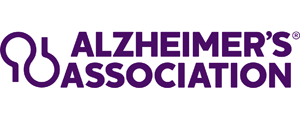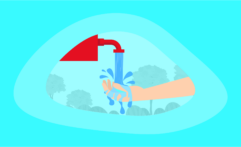9 Best Charities That Fight Alzheimer’s Disease (Complete 2025 List)
Affiliate Disclosure
Hey fellow impactful ninja ?
You may have noticed that Impactful Ninja is all about providing helpful information to make a positive impact on the world and society. And that we love to link back to where we found all the information for each of our posts.
Most of these links are informational-based for you to check out their primary sources with one click.
But some of these links are so-called "affiliate links" to products that we recommend.
Why do we add these product links?
First and foremost, because we believe that they add value to you. For example, when we wrote a post about the environmental impact of long showers, we came across an EPA recommendation to use WaterSense showerheads. So we linked to where you can find them. Or, for many of our posts, we also link to our favorite books on that topic so that you can get a much more holistic overview than one single blog post could provide.
And when there is an affiliate program for these products, we sign up for it. For example, as Amazon Associates, we earn from qualifying purchases.
What do these affiliate links mean for you?
First, and most importantly, we still only recommend products that we believe add value for you.
When you buy something through one of our affiliate links, we may earn a small commission - but at no additional costs to you.
And when you buy something through a link that is not an affiliate link, we won’t receive any commission but we’ll still be happy to have helped you.
What do these affiliate links mean for us?
When we find products that we believe add value to you and the seller has an affiliate program, we sign up for it.
When you buy something through one of our affiliate links, we may earn a small commission (at no extra costs to you).
And at this point in time, all money is reinvested in sharing the most helpful content with you. This includes all operating costs for running this site and the content creation itself.
What does this mean for me personally?
You may have noticed by the way Impactful Ninja is operated that money is not the driving factor behind it. It is a passion project of mine and I love to share helpful information with you to make a positive impact on the world and society. However, it's a project in that I invest a lot of time and also quite some money.
Eventually, my dream is to one day turn this passion project into my full-time job and provide even more helpful information. But that's still a long time to go.
Stay impactful,
Approximately 5,8 million Americans are currently living with Alzheimer’s disease, a number that is predicted to nearly triple to 14 million by 2060. Fortunately, charities worldwide are working tirelessly to improve the lives of those living with Alzheimer’s and support breakthrough research into the disease. So we had to ask: What are the best charities that fight Alzheimer’s disease?
The best charities that fight Alzheimer’s disease are the Alzheimer’s Association, Cure Alzheimer’s Fund, and the BrightFocus Foundation. Charities like The Long Island Alzheimer’s and Dementia Center and Alzheimer’s Family Center aim to improve the lives of both patients and caregivers.
Whether you want to support innovative research into Alzheimer’s disease or support programs that alleviate the struggles of both patients and caregivers, there is a charity for you. Keep reading to learn more about what the best charities that fight Alzheimer’s disease are all about, how they work, and what your best way would be to make a contribution.
Here’s What All the Best Charities That Fight Alzheimer’s Disease Have in Common
The charities on the list were chosen based on their missions and impact in advancing breakthrough research and offering aid to impacted families.
They primarily operate in North America but they also help people across the globe suffering from Alzheimer’s disease.
Some of the charities below target the development of new research insights into the early detection, treatment, and prevention of Alzheimer’s disease.
Other charities focus on improving the day-to-day lives and challenges of people suffering from the disease, as well as their families, and caregivers. They assist them through tailored programs, counseling, and community events.
Yet, all these charities share a common goal; to educate and acknowledge the severity of Alzheimer’s disease.
These Are the 9 Best Charities That Fight Alzheimer’s Disease in 2025
Below are our favorite charities that fight Alzheimer’s disease (you can click on their link to directly jump to their section in this article):
Best Charities That Fight Alzheimer’s Disease
(At the end of this article we’ll also share our six-step approach on how you can select the best charity to support.)
Alzheimer’s Association: A World Without Alzheimer’s and All Other Dementia

🔎
Their transparency & ratings:
The Alzheimer’s Association has a 3-star rating on Charity Navigator, with a 100% score for leadership and adaptability. They also hold a Platinum Seal of Transparency from GuideStar.
“We work on a national and local level to provide care and support for all those affected by Alzheimer’s and other types of dementia.”
The Alzheimer’s Association
⚒️
What they do:
The Alzheimer’s Association accelerates global research toward methods of treatment, early detection, and ultimately a cure, for Alzheimer’s disease by funding independent researchers through their International Research Grant Program. They also offer support to people affected by Alzheimer’s and their caregivers. In addition, they are the leading voice of Alzheimer’s disease advocacy, fighting for critical care initiatives at state and federal levels.
🚀
What they’ve achieved:
The Alzheimer’s Association invests over $300 million in more than 920 projects in 45 countries on 6 continents. For example, in 2021, they granted more than $70 million to 253 scientific investigations. They also host global forums for Alzheimer’s scientists to connect and share their discoveries. In addition, the charity has established partnerships with key government, industry, and academic stakeholders to diagnose and eventually cure the disease.
✨
Ways to contribute:
You can donate directly to The Alzheimer’s Association through their website. You can also support the charity by volunteering or participating in their fundraising events. In addition, you can sign their petition to increase federal funding into curing the disease.
Cure Alzheimer’s Fund: Targeting Breakthrough Research

🔎
Their transparency & ratings:
Charity Navigator gives Cure Alzheimer’s Fund a 4-star rating, with a 100% score for both transparency and leadership metrics. They also hold a Platinum Seal of Transparency from GuideStar.
“Our goal is to stop Alzheimer’s disease through early prediction, prevention, and effective intervention leading to a cure.”
Cure Alzheimer’s Fund
⚒️
What they do:
The Cure Alzheimer’s Fund supports hundreds of projects to develop a better understanding of Alzheimer’s disease and get closer to a cure. They also provide grants in nine major areas of scientific study, including the interaction of the Alzheimer’s genome with stem cells and the microbiome. Their grants are offered to scientific researchers that contribute to the field’s knowledge base with various experimental plans and studies. They also fund multiple topics of interest related to Alzheimer’s evaluation, early discovery, and treatments.
🚀
What they’ve achieved:
To date, Cure Alzheimer’s Fund has subsidized over $152 million in research to prevent, slow, or reverse Alzheimer’s disease and assigned 642 grants. For example, in 2021 they spent $17.5 million to support 77 research projects across their research areas of focus. They have funded 125 individual researchers and have started 40 new investigations and 31 new projects.
✨
Ways to contribute:
You can donate directly to the Cure Alzheimer’s Fund through their website. You can also donate through Amazon and eBay. In addition, you can start a fundraiser or give an old vehicle.
BrightFocus Foundation: Working to Save Mind and Sight

🔎
Their transparency & ratings:
BrightFocus Foundation has a 3-star rating from Charity Navigator, with a 97% score for accountability and transparency. GuideStar gives them the Platinum Seal of Transparency.
“Our commitment and perseverance remain steadfast. We focus our resources on finding cures for diseases we all fear most – loss of mind and loss of sight.”
BrightFocus Foundation
⚒️
What they do:
The BrightFocus Foundation funds programs designed to provide initial support for experimental research and curative ideas for Alzheimer’s disease. Using a 360° approach, they explore a wide range of scientific paths toward better treatments by identifying high-risk, high-reward projects that have the best chances to change the trajectory of the disease. For this, they offer monetary grants that have helped advance several discoveries which have contributed to the development of new treatments and preventions. They also build resources for better living with Alzheimer’s or caring for someone who has the disease.
🚀
What they’ve achieved:
Since their founding, the BrightFocus Foundation has given nearly $140 million to support Alzheimer’s diagnosis and treatment. To date, they have awarded over 700 grants and support around 152 biomedical researcher projects every year. For example, in 2021 they funded 149 projects in 11 fields of research, and assisted the work of 50 scientists. Between 2019 and 2021, they collectively funded nearly $36 million in research grants.
✨
Ways to contribute:
You can donate directly to the BrightFocus Foundation on their website, or you can choose to donate specifically to their Alzheimer’s Disease Research program. You can also start a Facebook fundraiser, or collaborate through corporate sponsorship and workplace giving.
Alzheimer’s Foundation of America: Help For Today, Hope For Tomorrow

🔎
Their transparency & ratings:
The Alzheimer’s Foundation of America has a 4-star rating from Charity Navigator, with a 100% score for transparency metrics. GuideStar gives them the Silver Seal of Transparency.
“We provide support, services and education to individuals, families and caregivers affected by Alzheimer’s disease and related dementias nationwide.”
Alzheimer’s Foundation of America
⚒️
What they do:
The Alzheimer’s Foundation of America funds numerous research projects to improve the quality of life and treatments for people living with Alzheimer’s disease. Their National Toll-Free Helpline is open seven days a week and staffed entirely by licensed social workers specifically trained in dementia care. They also award grant opportunities that help to advance support and services to individuals and caregivers affected by Alzheimer’s disease. In addition, they offer training and educational programs to help improve the expertise and resources of Alzheimer’s caregivers.
🚀
What they’ve achieved:
To date, the Alzheimer’s Foundation of America’s helpline has more than 2,000 member organizations that serve impacted families nationwide. In 2020, they donated nearly $7 million to their scientific and social programs. They also have a National Memory Screening Program which has provided free, confidential memory screenings to more than 5 million people to date. Their continuing training and education programs have helped to train more than 20,000 individual caregivers.
✨
Ways to contribute:
You can donate to the Alzheimer’s Foundation of America through their website. You can also get involved by fundraising or through workplace giving. In addition, you can participate in their Walk in the Park fundraising event.
The Long Island Alzheimer’s and Dementia Center: With You Every Step of the Way

🔎
Their transparency & ratings:
The Long Island Alzheimer’s and Dementia Center has a 4-star rating from Charity Navigator, with a 100% score for accountability and transparency. They also hold the Gold Seal of Transparency from GuideStar.
“We are offering hands-on services that provide respite, support and stimulating programs. Making a positive difference — one person, one family, one community at a time.”
The Long Island Alzheimer’s and Dementia Center
⚒️
What they do:
The Long Island Alzheimer’s and Dementia Center designs various Day Programs to help patients and families facing Alzheimer’s challenges and prevent premature nursing home placements. Their multiple day care programs address the early stage, moderate, and late stage Alzheimer’s separately, to ensure more visible improvements and results. Patients can also attend their Brain Fitness Workshops, to reshape their mental acuity. In addition, the center attends to their caregivers through support groups, counseling sessions, and in-home respite.
🚀
What they’ve achieved:
Since their founding, the Long Island Alzheimer’s and Dementia Center has remained dedicated to supporting patients suffering from these diseases. For example, in 2021, the organization provided $1.6 million for patient support services and funded nearly $300,000 from organized events.
✨
Ways to contribute:
You can donate to the Long Island Alzheimer’s and Dementia Center directly on their website. You can also contribute through corporate or workplace giving, by volunteering, or by participating in their fundraising events.
Alzheimer’s Research & Prevention Foundation: Dedicated to Preventing Alzheimer’s Disease

🔎
Their transparency & ratings:
The Alzheimer’s Research and Prevention Foundation has a 3-star rating from Charity Navigator and holds a Gold Seal of Transparency from GuideStar.
“Championing the holistic approach to Alzheimer’s prevention.”
Alzheimer’s Research and Prevention Foundation
⚒️
What they do:
The Alzheimer’s Research and Prevention Foundation has a holistic strategy for Alzheimer’s prevention and care. This involves their “The 4 Pillars of Alzheimer’s Prevention”, which is an integrative approach that includes advice on diet and supplements, stress management, and spiritual fitness. They also provide memory screenings.
🚀
What they’ve achieved:
To date, the Alzheimer’s Research and Prevention Foundation has funded hundreds of scientific papers, courses, trainings, and events. They have also proved a link between a specific form of meditation and increased activity in areas of the brain that are central to memory. For example, in 2020, they published 10 manuals and scientific research papers and continued 6 educational webinars that were watched by nearly 800 people. In the same year, they launched the “Brain Longevity Therapy” Training, which was attended by 152 professionals.
✨
Ways to contribute:
You can donate to the Alzheimer’s Research and Prevention Foundation directly on their website, with dollars or cryptocurrency. You can also opt for a vehicle donation or workplace matching gifts.
Alzheimer’s Family Center: Create Happier And Healthier Days

🔎
Their transparency & ratings:
The Alzheimer’s Family Center has a 4-star rating from Charity Navigator, with a 92,7% overall score and a 93% score for accountability and transparency.
“Creating happier, healthier days for people with dementia — and the caregivers and families who cherish them.”
Alzheimer’s Family Center
⚒️
What they do:
The Alzheimer’s Family Center provides support in three areas of focus. First, offer daycare services and programs for those with Alzheimer’s and other types of dementia, including projects like the Equilibrium™ Mental Health Services, Zoom activities, and Health Record Packets. Second, they offer guidance and assistance to family caregivers through support groups, counseling, and e-Books. Third, they provide community education through events like the Mind Booster Series and other workshops.
🚀
What they’ve achieved:
Since their founding, the Alzheimer’s Family Center has continued to provide vital care and support to people suffering from memory loss, including those with Alzheimer’s. For example, in 2018, they provided 25,000 patient days of care to nearly 300 people. Their nurses and social workers provided 11,000 hours of intensive care management and 1,400 hours of behavioral health services. In the same year, the charity helped 635 caregivers of patients living with Alzheimer’s, 150 of them also attending their caregiver support groups. They also offered 400 hours of community-based education by dementia professionals to nearly 10,000 individuals and administered 160 memory screenings.
✨
Ways to contribute:
You can make one-time or recurring donations to the Alzheimer’s Family Center through their website. You can also contact the charity directly to volunteer or apply for a job.
Fisher Center for Alzheimer’s Research Foundation: Together We Can Make Alzheimer’s Nothing but a Memory

🔎
Their transparency & ratings:
The Fisher Center for Alzheimer’s Research Foundation has a 4-star rating from Charity Navigator, with a 100% score for transparency and accountability. They also hold the Gold Seal of Transparency from GuideStar.
“We are dedicated to funding research into the cause, care and cure of Alzheimer’s disease.”
The Fisher Center for Alzheimer’s Research Foundation
⚒️
What they do:
The Fisher Center for Alzheimer’s Research Foundation primarily funds the research of the late Nobel laureate Dr. Paul Greengard. The studies are done by his team of over 50 internationally renowned scientists at the Fisher Center laboratory. Their medical plan has a three-fold focus. Firstly, they support biomedical research projects to advance findings and, ultimately, find a cure for Alzheimer’s disease. They also focus on understanding the causes that lead to Alzheimer’s and improving patient care to enhance their life quality.
🚀
What they’ve achieved:
Since their founding, the Fisher Center for Alzheimer’s Research Foundation has remained dedicated to finding a cure for Alzheimer’s disease. For example, in 2020, they donated nearly $8 million to contributions, gifts, and grants, and $6 million for research programs at the Fisher Center. In 2018, they donated nearly $6 million in grants and $4,6 million for biomedical research projects.
✨
Ways to contribute:
On their website, you can make one-time or recurring donations to the Fisher Center for Alzheimer’s Research Foundation. You can also support them through workplace donations or by setting up a fundraiser.
MemoryCare: Quality Time, Quality Care

🔎
Their transparency & ratings:
MemoryCare has a 4-star rating on Charity Navigator, with a 100% score for accountability and transparency metrics. They also hold a Platinum Seal of Transparency from GuideStar.
“By engaging caregivers early in the Alzheimer’s diagnostic process, we are able to prolong time at home and ease the stress that the disease can cause.”
MemoryCare
⚒️
What they do:
MemoryCare provides medical care to Alzheimer’s patients, as well as supporting caregivers with education, counseling, and access to services. Their treatment model is to constantly engage the patient’s caregivers in the evaluation and management process of Alzheimer’s. Their physicians meet and treat their patients at the charity’s Givens Retirement Community, spending equal time with the patient and their caregivers during all appointments. This way, doctors can develop tailored care plans and strengthen the bond between the caregiver and patients to help fight the disease more efficiently.
🚀
What they’ve achieved:
MemoryCare serves more than 4,200 people each year. For example, in 2020, they helped over 1000 people living with various forms of dementia and 3,500 of their family caregivers. They also reached over 2,300 people with dementia-specific education. Their peer support groups meet three times per month, and their Caregiver Consultants meet families online and in person throughout the year.
✨
Ways to contribute:
You can donate to MemoryCare directly on their website. You can also get involved by becoming a volunteer, fundraising, or by donating your vehicle.
How Can You Select the Best Charities to Support?
The charities on the list are, we deem, the best charities that fight Alzheimer’s disease. However, you may have a particular charity you want to support. Let’s look at what you can do to ensure your contribution has the most significant impact.
- Check out the charity website. Charities that are worthy of your donations are transparent in their mission and their figures. Familiarise yourself with their history, mission, and values. Their website usually is the best place to start.
- Identify the charity’s mission. Without a goal, the charity is likely to fail. If the charity’s mission isn’t clear, it’s probably worth looking for a charity that does have a clear mission.
- Check if the charity has measurable goals. An effective charity has clear goals. You want to know your donation will help the charity reach its goals. But if it doesn’t have targets, it’s likely to fail or squander your gift. The charity should be able to account for its spending and supply evidence of the work they do.
- Assess the successes or goals the charity has achieved. You wouldn’t invest in a business if it kept missing its targets. In the same way, charities are like this too. If no one is assessing a charity’s progress in reaching its targets, the chances are they’re not making a substantial positive change.
- Check the charity’s financials and stats. Trustworthy organizations will publish financial statements and reports each year. Some might be exempt from having to do so, but they should be able to provide them to public members who are interested in donating.
- Locate sources who work with or benefit from the charity. Word of mouth and first-hand experience of a charity’s work lets you know the charity’s quality. If you’re able to do so, check out the charity for yourself or speak to someone familiar with it. This way, your donation will go to the right place.
How Can You Best Support These Charities?
After you’ve made your decision, it’s time for you to decide on how you’d like to help the charities you’ve chosen. Check how you can help – each charity runs specific programs that have unique aims. Find out what the aim of such programs is and whether they are right for you.
Here are a few ways you can help your chosen charity:
- Donate money. You can find donation pages on the website of most charities. Your donation can be a one-time payment, or you can set it to be deducted regularly at different intervals. You can mostly pay via credit card, but some charities also take PayPal or Bitcoin payments.
- Buy their official merchandise. The charities can also raise money by selling merchandise. So, you can support them by buying the mugs, shirts, caps, pens, pencils, and any other such items they may be selling. Ideally, you should buy as much as you can to share and spread the word about the charity’s activities.
- Engage in volunteer work. As you’ve seen from our descriptions above, some charities engage in a lot of local and grassroots programs. You can help by taking on and organizing the program in your local area.
- Help their fundraising efforts. You can spread the word about the charity in your workplace, school, church, etc., and hold creative fundraising drives on social media or offline within your small circles.
- Share their stories. Most charities have compelling stories that you can share with your audience to attract more people to the cause.
Final Thoughts
Now it is up to you to select the charity that resonates most with you. And whichever charity you end up choosing and contributing to, we are sure that they will immensely appreciate your support. Hopefully, the information within this article has made this selection process a bit easier for you to support charities dedicated to fighting Alzheimer’s disease – based on the causes that matter most to you.
Stay impactful,

PS: Finally, I want to leave you with a thought-provoking TED talk from Dan Pallotta, a leading philanthropic activist and fundraiser, about what is wrong with the way we think about charities – and what we can do about it:
Sources
- CDC: Alzheimer’s Disease and Related Dementias
- Alzheimer’s Association: Home Page
- Charity Navigator: Alzheimer’s Association
- GuideStar: Alzheimer’s Association
- Alzheimer’s Association: Research
- Alzheimer’s Association: Live Well
- Alzheimer’s Association: Caregiving
- Alzheimer’s Association: Alzheimer’s Association Appeal for Increased Federal Research
- Alzheimer’s Association: Grants
- Alzheimer’s Association: Our Commitment
- Alzheimer’s Association: Funded Studies
- Alzheimer’s Association: Donation
- Alzheimer’s Association: Volunteering
- Alzheimer’s Association: Fundraising
- Alzheimer’s Association: Petition
- Cure Alzheimer’s Fund: Home Page
- Charity Navigator: Cure Alzheimer’s Fund
- GuideStar: Cure Alzheimer’s Fund
- Cure Alzheimer’s Fund: Research Funded Projects
- Cure Alzheimer’s Fund: Areas of Focus
- Cure Alzheimer’s Fund: Grant Process
- Cure Alzheimer’s Fund: Researchers
- Cure Alzheimer’s Fund: Topics of Interest
- Cure Alzheimer’s Fund: 2021 Annual Report
- Cure Alzheimer’s Fund: Donate
- AmazonSmile
- Charity eBay
- Cure Alzheimer’s Fund: Ways to Donate
- BrightFocus Foundation: Home Page
- Charity Navigator: BrightFocus Foundation
- GuideStar: BrightFocus Foundation
- BrightFocus Foundation: Our Programs
- BrightFocus Foundation: Alzheimer’s
- BrightFocus Foundation: Grants and Studies
- BrightFocus Foundation: Living with Alzheimer’s
- BrightFocus Foundation: Caregiving
- BrightFocus Foundation: Research We Fund
- BrightFocus Foundation: 2021 Annual Report
- BrightFocus Foundation: General Donation
- BrightFocus Foundation: Alzheimer’s Disease Research Donation
- BrightFocus Foundation: Corporations Foundations
- BrightFocus Foundation: Workplace Giving
- Alzheimer’s Foundation of America: Home Page
- Charity Navigator: Alzheimer’s Foundation of America
- GuideStar: Alzheimer’s Foundation of America
- Alzheimer’s Foundation of America: Research Projects
- Alzheimer’s Foundation of America: AFA Helpline
- Alzheimer’s Foundation of America: Grant Information
- Alzheimer’s Foundation of America: Professional Training And Education
- Alzheimer’s Foundation of America: Caregiving Resources
- Alzheimer’s Foundation of America: Mission and History
- Alzheimer’s Foundation of America: Memory Screening
- Alzheimer’s Foundation of America: 2020 Annual Report
- Alzheimer’s Foundation of America: Donate
- Alzheimer’s Foundation of America: Fundraising
- Alzheimer’s Foundation of America: Workplace Giving
- Alzheimer’s Foundation of America: Walk In the Park Donation
- Alzheimer’s Foundation of America: Walk In the Park Fundraising
- Alzheimer’s Foundation of America: Walk In the Park Event
- Long Island Alzheimer’s and Dementia Center: Home Page
- Charity Navigator: Long Island Alzheimer’s and Dementia Center
- GuideStar: Long Island Alzheimer’s and Dementia Center
- Long Island Alzheimer’s and Dementia Center: What We Do
- Long Island Alzheimer’s and Dementia Center: Who We Help
- Long Island Alzheimer’s and Dementia Center: Early Stage Alzheimer’s Program
- Long Island Alzheimer’s and Dementia Center: Moderate Stage Alzheimer’s Program
- Long Island Alzheimer’s and Dementia Center: Late Stage Alzheimer’s Program
- Long Island Alzheimer’s and Dementia Center: Brain Fitness Workshop
- Long Island Alzheimer’s and Dementia Center: Caregiver support groups
- Long Island Alzheimer’s and Dementia Center: Counseling Services
- Long Island Alzheimer’s and Dementia Center: Caregiver Respite
- Long Island Alzheimer’s and Dementia Center: 2020 Annual Report
- Long Island Alzheimer’s and Dementia Center: 2021 Annual Report
- Long Island Alzheimer’s and Dementia Center: Donation
- Long Island Alzheimer’s and Dementia Center: Corporate
- Long Island Alzheimer’s and Dementia Center: Volunteering
- Long Island Alzheimer’s and Dementia Center: Event Partnerships
- The Alzheimer’s Research and Prevention Foundation: Home Page
- Charity navigator: The Alzheimer’s Research and Prevention Foundation
- GuideStar: The Alzheimer’s Research and Prevention Foundation
- The Alzheimer’s Research and Prevention Foundation: About Us
- The Alzheimer’s Research and Prevention Foundation: 4 Pillars of Prevention
- The Alzheimer’s Research and Prevention Foundation: Diet and Supplement
- The Alzheimer’s Research and Prevention Foundation: Stress Management
- The Alzheimer’s Research and Prevention Foundation: Spiritual Fitness
- The Alzheimer’s Research and Prevention Foundation: HIGHLIGHTS & ACCOMPLISHMENTS
- The Alzheimer’s Research and Prevention Foundation: Research
- The Alzheimer’s Research and Prevention Foundation: Kirtan Kriya meditation
- The Alzheimer’s Research and Prevention Foundation: 2020 Annual Report
- The Alzheimer’s Research and Prevention Foundation: Brain Longevity Training
- The Alzheimer’s Research and Prevention Foundation: Donations
- The Alzheimer’s Research and Prevention Foundation: Cryptocurrency
- The Alzheimer’s Research and Prevention Foundation: Vehicle Donation
- The Alzheimer’s Research and Prevention Foundation: Workplace Matching Gifts
- Alzheimer’s Family Center: Home Page
- Charity navigator: Alzheimer’s Family Center
- Alzheimer’s Family Center: Financials
- Alzheimer’s Family Center: Adult Day Health Care
- Alzheimer’s Family Center: Mental Health Services
- Alzheimer’s Family Center: Virtual Activities
- Alzheimer’s Family Center: Health Record Packet
- Alzheimer’s Family Center: Support Groups
- Alzheimer’s Family Center: Counseling
- Alzheimer’s Family Center: e-Books
- Alzheimer’s Family Center: Past Events
- Alzheimer’s Family Center: Mind Booster Series
- Alzheimer’s Family Center: Legal Workshop
- Alzheimer’s Family Center: 2018 Annual Report
- Alzheimer’s Family Center: Donation
- Alzheimer’s Family Center: Volunteering
- The Fisher Center for Alzheimer’s Research Foundation: Home Page
- Charity Navigator: The Fisher Center for Alzheimer’s Research Foundation
- GuideStar: The Fisher Center for Alzheimer’s Research Foundation
- The Fisher Center for Alzheimer’s Research Foundation: About
- The Fisher Center for Alzheimer’s Research Foundation: Dr Paul Greengard
- The Fisher Center for Alzheimer’s Research Foundation: About Our Research
- The Fisher Center for Alzheimer’s Research Foundation: Alzheimer’s Research
- The Fisher Center for Alzheimer’s Research Foundation: Breakthrough findings
- The Fisher Center for Alzheimer’s Research Foundation: What Causes Alzheimer’s
- The Fisher Center for Alzheimer’s Research Foundation: Treatment Care
- The Fisher Center for Alzheimer’s Research Foundation: Financial Statements
- The Fisher Center for Alzheimer’s Research Foundation: 2020 Annual Report
- The Fisher Center for Alzheimer’s Research Foundation: Donations
- The Fisher Center for Alzheimer’s Research Foundation: Workplace Donations
- The Fisher Center for Alzheimer’s Research Foundation: Fundraising
- MemoryCare: Home Page
- Charity Navigator: MemoryCare
- GuideStar: MemoryCare
- MemoryCare: Caregiver Information
- MemoryCare: Caregiver College
- MemoryCare: Our clinical model
- MemoryCare: Staff
- MemoryCare: About Us
- MemoryCare: Our Impact
- MemoryCare: MemoryCaregivers network
- MemoryCare: Caregiver Consultation
- MemoryCare: Donation
- MemoryCare: Volunteering
- MemoryCare: Ways to Give







